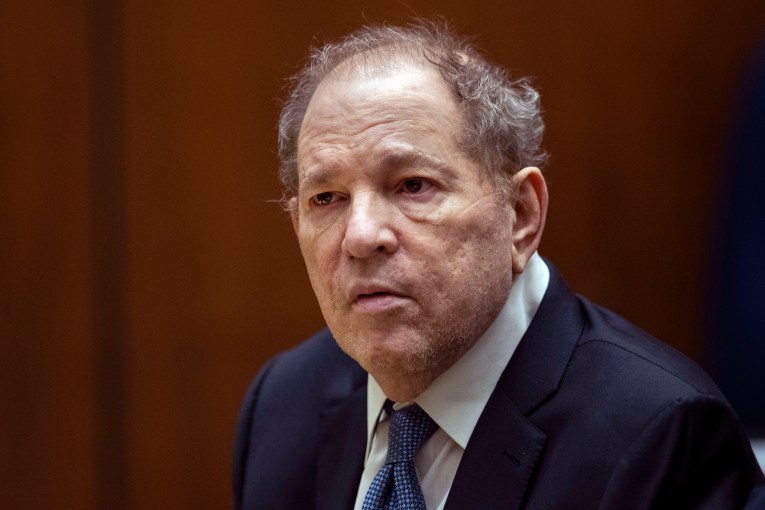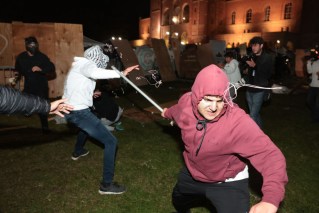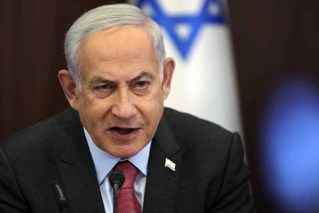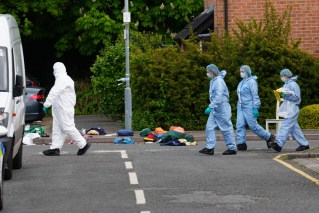Diplomats grapple for Iran nuclear deal
Diplomats grappled to secure a landmark deal at a third day of talks on Iran’s nuclear program, but cracks were emerging among world powers after France raised concerns.
The US, British, French, German and Russian foreign ministers rushed to Geneva to join the talks amid hopes of a breakthrough on Saturday toward ending the decade-old standoff on Iran’s nuclear efforts.
The hoped-for agreement — seen as a first step ahead of further talks on a final deal — could see Iran freeze parts of its nuclear program for as long as six months in exchange for some relief from the sanctions battering its economy.
Officials have repeatedly said progress is being made but cautioned that serious obstacles remain.
France in particular was considered to have concerns about the deal, with Foreign Minister Laurent Fabius saying there was “no certainty” of an agreement.
“There has been progress but there is still distance” between the two sides, the ISNA news agency quoted Iranian Foreign Minister Mohammad Javad Zarif as saying.
Zarif was speaking as he headed into key talks with US Secretary of State John Kerry, who cut short a Middle East tour to join the negotiations, and EU diplomatic chief Catherine Ashton, who has represented the world powers at the talks.
In an apparent sign of frustration among the Iranians, their chief negotiator said a deal would need to be reached on Saturday or talks would be put on hold until a later date.
“The negotiations will not go on tomorrow. Either they end tonight or there is another round,” Iranian news agencies quoted Deputy Foreign Minister Abbas Araqchi as saying.
Fabius earlier said Paris did not accept an initial draft of the deal as presented.
The French foreign minister cited calls for Iran to halt operations at its Arak nuclear reactor and questions about enriched uranium stockpiles as particular points of contention.
“If these questions are not settled, it will not be possible” to reach a deal, Fabius told France Inter radio, saying a deal also needed “to take fully into account Israel’s security concerns”.
Using unusually harsh language, a Western diplomat said France was complicating the talks.
“The Americans, the EU and the Iranians have been working intensively together for months on this proposal, and this is nothing more than an attempt by Fabius to insert himself into relevance late in the negotiations,” the diplomat told AFP.
Pressure was high for the diplomats to finally reach a deal after a decade of negotiations between Iran and the P5+1 group — the US, Britain, France, Germany, Russia and China.
British Foreign Secretary William Hague said world leaders needed to seize a rare chance.
“These negotiations have made very good progress,” Hague told journalists. “We have to do everything we can to seize the moment and seize the opportunity to reach a deal that has eluded the world.”
Officials had a series of meetings on Saturday, with Russian Foreign Minister Sergei Lavrov also arriving to join the talks.
Reports say the proposed deal could see Iran stop enriching uranium to 20 per cent, just a few technical steps from weapons-grade, reduce existing stockpiles and agree not to activate its plutonium reactor at Arak.
Global powers would in exchange take limited and “reversible” measures to ease sanctions, such as unfreezing some Iranian funds in foreign accounts.
Negotiators would then have time to work out a more comprehensive deal that Iran has said it hopes could be in place within a year.
The possible agreement already came under fire from Israel, Iran’s bitter enemy.
“This is a very bad deal. Israel utterly rejects it,” said Israeli Prime Minister Benjamin Netanyahu.
The world powers in the talks suspect Iran’s program is aimed at developing nuclear weapons, despite Tehran’s repeated denials.
Iran also expects to sign an accord with the chief of the UN nuclear watchdog on Monday that will include “concrete actions”, Tehran’s ambassador to the agency, Reza Najafi, told state television.
The International Atomic Energy Agency (IAEA) has said its chief, Yukiya Amano, will travel to Tehran on Monday to discuss “technical issues” related to monitoring Iran’s nuclear program.
The talks were given new momentum by the June election of Iranian President Hassan Rouhani, seen as a relative moderate.
Iran is anxious for relief from crippling US and European Union economic sanctions that have cut oil revenues by more than half, caused the value of its currency to plunge and pushed inflation above 40 per cent.








